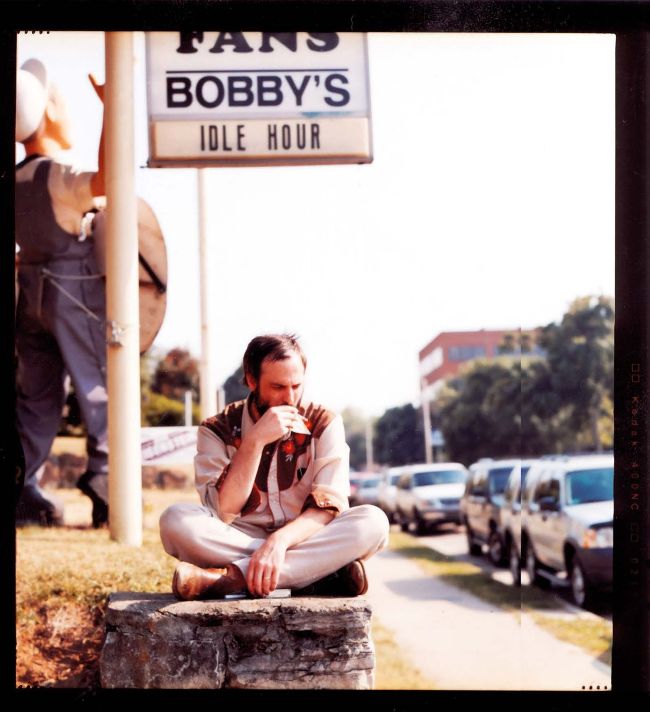DAVID BERMAN
Send in the clouds
The wry, sardonic brilliance of DAVID BERMAN shone brightly until his tragic suicide in 2019, aged only 52. As American Water – the first great masterpiece by his band Silver Jews – turns 25, Berman’s friends and former collaborators reflect on the idiosyncratic life and work of a tragic genius. “The saddest people are always the funniest,” learns Rob Hughes
DAVID BERMAN

“Hewason a differentplane”: Bermanin Nashville,2005
Photo byBOBBI FABIAN
THE Whitney Museum of American Art has moved around several times since it was founded in 1930. By the turn of the ’90s, it was housed on Manhattan’s Upper East Side, on Madison Avenue, where three aspiring musicians – David Berman, Stephen Malkmus and Steve West – were employed as security guards. “All these weird older characters worked with us at the Whitney, really interesting people from New York,” recalls Malkmus. “It was more intellectually stimulating than just working in a bar. Mixed with the art, the whole thing was kind of a trip.”
Hosting works by multifaceted artists like Jean-Michel Basquiat, Bruce Nauman and Sherrie Levine, the museum proved inspirational. Malkmus was by then involved with his own band, Pavement. Berman, meanwhile, was primarily a poet. But the Whitney widened his ambition. “David was constantly writing poetry at the museum,” says Pavement percussionist Bob Nastanovich. “Then suddenly he started spending a lot of time conjuring up lyrics. It spurred him on to using music as a vehicle for his poetry.” Berman christened his conceptual project Silver Jews. Over the next couple of decades, he presided over a lineup forever in flux, creating some of the most compelling music of the times: a highly literate assemblage of the tragi-comic that operated on multiple levels. More often that not though, his work felt like a series of discharges from his deepest self.
The work was the product of an astutely complex and troubled mind. Berman spent much of his life negotiating what he called “treatment-resistant depression” and dealing with substance abuse. Silver Jews’ music reflected the intensity of its creator, from the urgent lo-fi beginnings of 1994’s Starlite Walker to the sharper glare of 2005’s Tanglewood Numbers and beyond, as Berman freely appropriated folk, country and post-punk. There was his first masterpiece – American Water, released 25 years ago this year, which Fleet Foxes referenced in tribute to Berman, among other fallen heroes, on 2020’s “Sunblind”. Berman called time on Silver Jews after 2008’s Lookout
Mountain, Lookout Sea, seeing his future in “screenwriting or muckraking” rather than having to combat the debilitating stage fright that accompanied the band’s shows. “He hated it,” says West, Pavement drummer and member of Silver Jews’ live set-up. “The touring thing was always tough for him. He just got tired and didn’t want to do it any more.”
Berman’s exile lasted a little over 10 years. In 2019, he returned with a new project, Purple Mountains, and an album that stands among his greatest achievements. That he never lived to fully appreciate its impact – Berman was dead within a month of its release – only made his prolonged absence more heartbreaking.